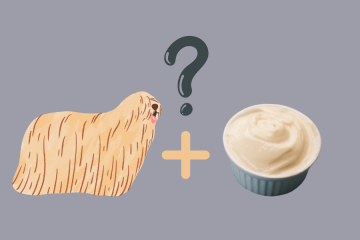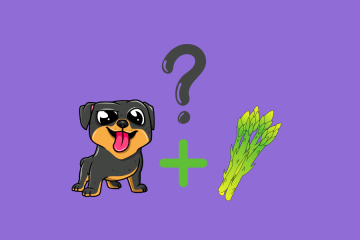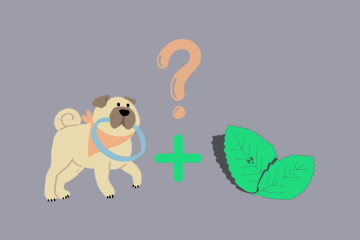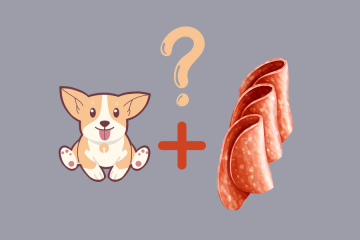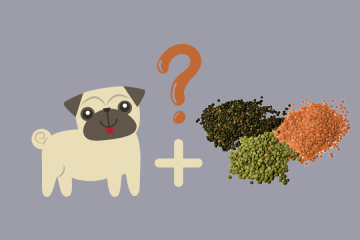KEY TAKEAWAYS
- Dogs can eat some kinds of nuts, but it’s important to be aware of the risks associated with doing so.
- Nuts can be dangerous for dogs if they’re eaten in large quantities or by small dogs, and some dogs are allergic to them.
- Macadamia nuts are toxic to dogs, and black walnuts and pecans can harm their health in the long run.
- Moderation is key – a dog can have one or two nuts on occasion without any problems.
- If you’re not sure whether your dog can eat nuts, ask your veterinarian.
It’s Not That Simple
Can dogs eat nuts? You won’t be happy to know that there is no simple answer to that question. If introduced to the diet responsibly, nuts can actually offer a great source of protein and fat for canines – however, they can just as well be a deadly threat. It depends on many factors, such as the type of nut, your dog’s individual traits, as well as the frequency of potential nut consumption.
Peanuts, Almonds, Walnuts – What’s the Difference?
Different nuts contain different concentration of certain nutrients and substances, some of which can be harmful to dogs. Knowing the composition of common nuts will allow you to determine which types of nuts are generally safe for dogs to eat and which should be avoided at all costs.
These Nuts Are Best to Avoid
Can dogs eat nuts? Possibly, but we don’t recommend feeding your dog any of these:
- Almonds: They contain cyanide in their shells, which can lead to the development of hydrogen cyanide in canines’ blood. Hydrogen cyanide can in turn lead to respiratory issues, paralysis and even death, if ingested by dogs on a regular basis.
- Brazil nuts: Just like almonds, they are rich in cyanide, except they possess significantly higher levels of this poisonous compound. Even if you shell them, they’re very fatty, which can be dangerous for your dog’s pancreas.
- Peanuts: Although rich in unsaturated fats and high-quality protein, peanuts are the main ingredient of peanut butter, which, despite being a popular treat for dogs, often contains xylitol, which may cause xylitol toxicity and, consequently, hypoglycemia.
- Walnuts: Canines can’t digest them properly, since walnuts contain compounds called juglone and anthocyanins, which are thought to be harmful to dogs. They can lead to increased lethargy and weakened motor skills. If ingested in large quantities, they can even cause paralysis of the hind legs and trouble breathing. Black walnuts are particularly toxic to dogs when they contain mold.
- Pecans: These, on the other hand, can prove to be hazardous to dogs’ health in the long run, as they contain high levels of juglone and phytic acid. Phytic acid can make minerals such as calcium, iron, magnesium, copper and zinc unavailable to the body because it blocks their absorption during digestion. This can eventually lead to poor nutrient absorption in general, issues with the digestive system and stool dryness.
- Macadamia nuts: They are highly toxic to dogs, although it’s unknown what poisonous compound they contain. They cause vomiting, loss of coordination, weakness, overheating and lethargy among other symptoms.
These Nuts Are Safe for Dogs to Eat
Now it’s time to focus on the nuts that dogs can eat without them having an adverse effect on their health. While these can be included in your canine’s diet, you might want to limit their intake to once or twice a week:
- Hazelnuts: They can help canines suffering from arthritis. They can also be given to canines suffering from an upset stomach or diarrhea, since they can help regulate their bowel movements. Keep in mind that they can also pose a choking hazard if given whole.
- Cashew nuts: They can potentially help your dog with inflammatory issues and gastrointestinal problems – mind, however, that they are high in fat and might lead to excess weight gain.
- Hickory nuts: These can help prevent canines’ blood vessels from hardening, while improving their heart health. On the other hand, if they’re seasoned with salt, they can make heart problems worse. They can also harbor hidden mold that could give a dog seizures. Only give these nuts to your dog with caution.
- Pistachios: Their high levels of vitamin B6 can make them a healthy addition to your dog’s diet. But only give them to your pup in moderation and choose an unsalted variety.
No matter the kind of nuts, you should remember to always get rid of the shell before giving them to your dog. Whole nuts can be particularly dangerous, as dogs swallow them whole without chewing or cracking the shell open, causing them to choke or hurt their internal organs. If this happens, you can have a potentially deadly obstruction on your hands that can require veterinary intervention to remove.
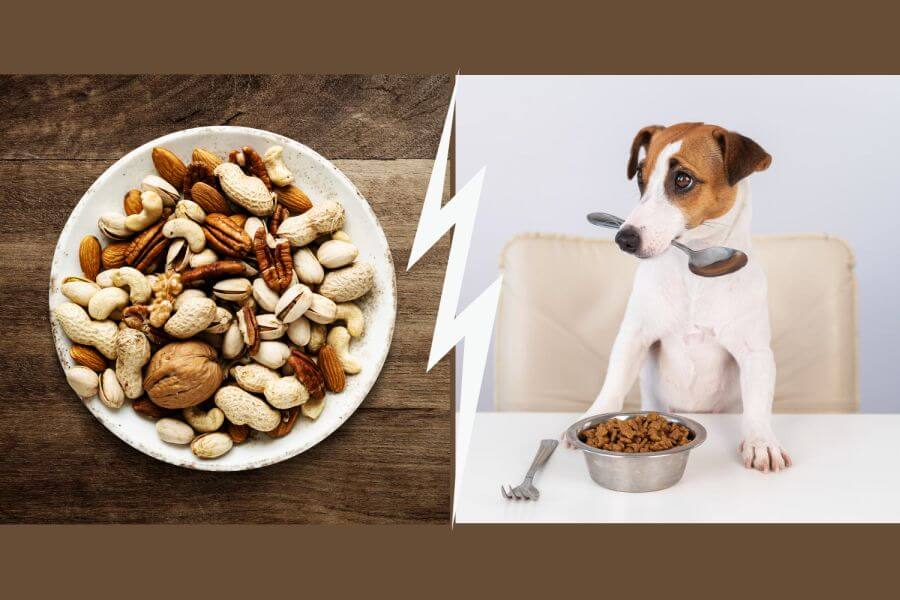
Dogs Aren’t the Same, Either
Size Matters
Whether dogs can eat nuts depends largely on their body size. Even healthy nuts can cause intestinal distress in canines if eaten in larger quantities or by small dogs. One nut should be safe as a treat for a small dog, while large canines can probably take 2–3.
Xylitol toxicity can be particularly seen in dogs that weigh 1–15 pounds, with smaller dogs being more sensitive to this sweetener than bigger ones. If you’re going to feed your dog peanut butter, make sure it’s completely sweetener-free.
Additional Risk Factors
Another factor to take into account when deciding whether dogs can eat nuts is your dog’s overall health. The most common condition that makes nuts extra dangerous for dogs is allergy to nuts or any substance present in them – it needn’t be explained that if your dog is allergic, they should stay away from nuts altogether. Another risk factors to take into account are diabetes and pancreatitis, as pancreatitis in dogs is caused by a buildup of too much fat in their blood.
Moderation Is Key
Can dogs eat nuts? We know now that they can, in fact, eat some kinds of them. The question is, how many nuts can a dog have? After all, it’s the dose that makes the poison, meaning that most nuts can be either okay or toxic for dogs in certain amounts.
Also, many nuts have a high fat content in them, which slows down the absorption of any dangerous compounds. Though you shouldn’t let your dog eat too many nuts at once, you needn’t worry about him having one or two on occasion either.
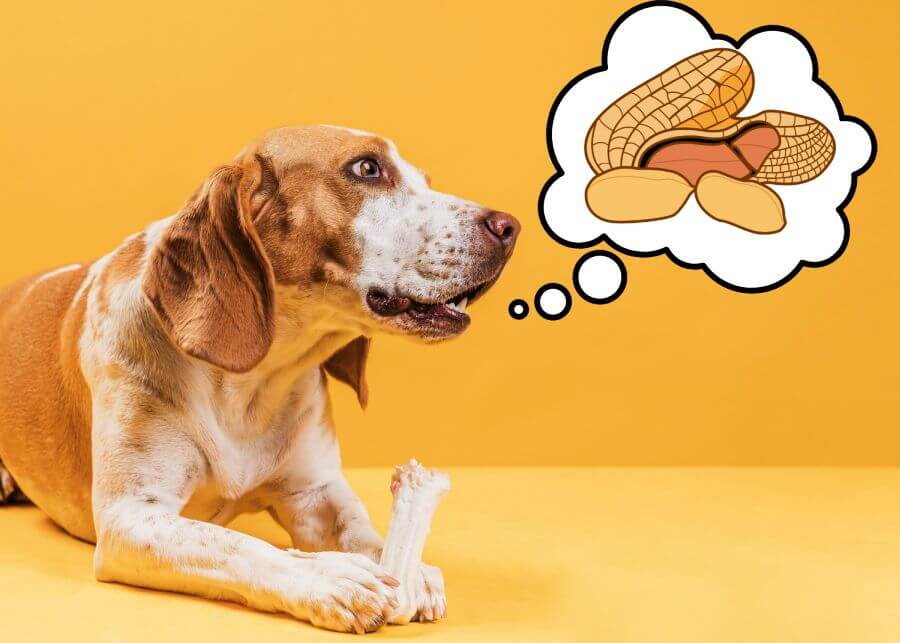
Can Dogs Eat Nuts? When in Doubt, Ask a Vet
In summary, whether you can feed your dog any kinds of nuts can often be highly individual. No one knows your dog better than a vet who, on top of possessing veterinary knowledge, has access to your dog’s medical records and can assess individual risk factors. Do not hesitate to ask your veterinarian before you make any change to your dog’s diet.
Frequently Asked Questions
Which Nuts Are Poisonous to Dogs?
The only nuts that are toxic to dogs in themselves are macadamia nuts. In addition, black walnuts and pecans can be harmful because of the juglone they contain. However, ASPCA Poison Control lists them as non-toxic. If you’re going to give your dog walnuts, make sure they aren’t old and moldy.
What Happens If a Dog Eats 1 Nut?
Nothing will probably happen if your dog eats one nut, as long as they don’t choke on it. If you’re going to give your dog a nut, supervise them as they eat to eliminate this risk.
Can Dogs Eat Cashews and Almonds?
It’s not recommended to feed your pup almonds. Even if shelled, they’re hard to digest and could cause gastrointestinal upset. Cashews seem to be safer, but moderation is key – never give your pup more than 1–3 nuts at once.
Lucas Taylor is a veterinary assistant, freelance journalist and single dad who lives in the suburbs with his three pups: Ruby, Nala, and Woody. He has one cat named Pepper. When he’s not writing articles or working at the vet clinic, Lucas loves cooking French cuisine for himself and friends at home. One of Lucas’ favorite things to do is paddleboard with his son Noah and their canine companions. Pepper is the homebody of the bunch – she loves chilling on the couch.

